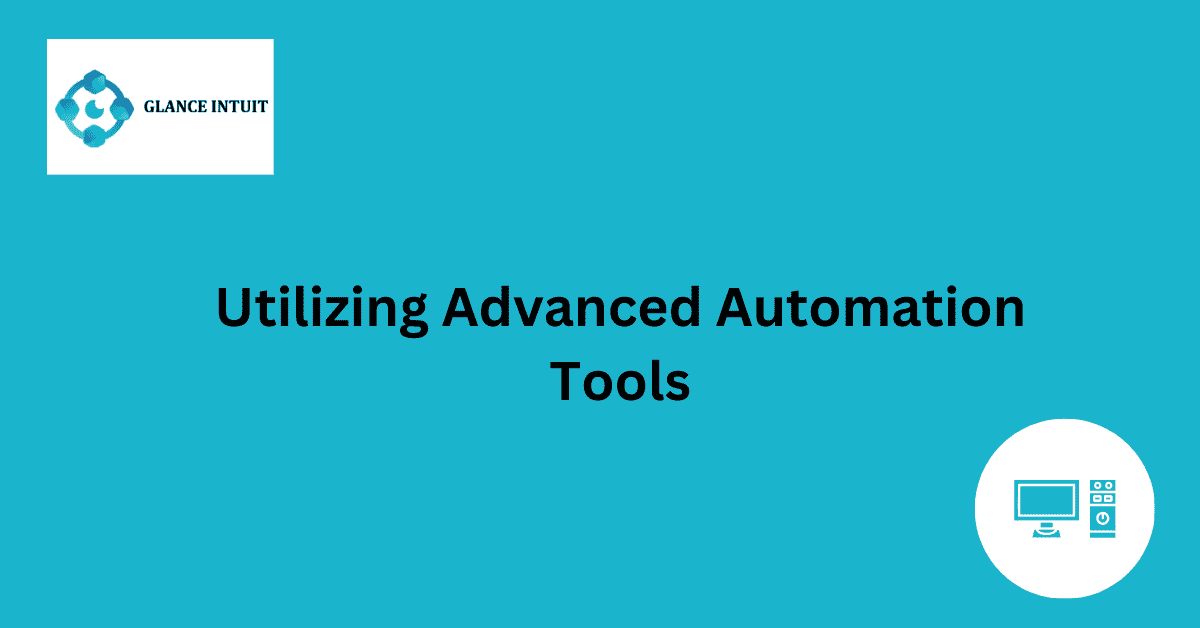Utilizing Advanced Automation Tools
Utilizing advanced automation tools can revolutionize the way businesses operate, streamlining processes and increasing efficiency. With Glance Intuit at the forefront of this technological advancement, companies can harness the power of automation to simplify tasks and enhance productivity. By integrating these tools into their workflows, organizations can stay ahead of the curve and adapt to the ever-changing demands of the market.
From data analysis to task management, Glance Intuit offers a wide range of automation solutions that cater to various industry needs. By leveraging these tools, businesses can optimize their operations and drive growth. With the help of advanced automation, companies can achieve higher levels of accuracy and precision in their processes, ultimately leading to improved outcomes and success in the competitive business landscape.
Benefits of Automation Tools in Business Operations
Automation tools have become essential in modern business operations, offering a wide range of benefits. One significant advantage is the reduction of manual tasks, allowing employees to focus on more strategic and value-added activities. These tools also improve efficiency by streamlining processes, minimizing errors, and increasing productivity. By automating routine tasks, businesses can save time and resources, leading to cost savings and improved profitability. Automation tools also enhance decision-making by providing real-time data and insights, allowing companies to make informed choices quickly.
How Glance Intuit Revolutionizes Task Management
Glance Intuit is a leading automation tool that revolutionizes task management by simplifying complex workflows and enhancing collaboration among team members. With its user-friendly interface and customizable features, Glance Intuit allows businesses to automate repetitive tasks, track progress, and communicate effectively. By centralizing task management processes, this tool improves visibility and accountability, ensuring timely completion of projects and goals. With Glance Intuit, businesses can optimize resource allocation, prioritize tasks, and achieve operational excellence.
Enhancing Productivity with Data Analysis Automation
Data analysis automation tools play a crucial role in enhancing productivity by processing large volumes of data quickly and accurately. These tools utilize advanced algorithms and machine learning techniques to extract valuable insights, trends, and patterns from raw data. By automating data analysis tasks, businesses can make data-driven decisions, identify opportunities for growth, and mitigate risks effectively. This results in improved operational efficiency, increased competitiveness, and better overall performance.
Achieving Precision and Accuracy Through Automation
Automation tools are designed to achieve precision and accuracy in various business operations, reducing the likelihood of human errors and inconsistencies. By automating repetitive tasks, businesses can ensure that processes are executed consistently and according to predefined standards. This leads to improved quality control, customer satisfaction, and compliance with regulatory requirements. Automation tools also enable businesses to perform tasks with a higher degree of accuracy, reducing the margin of error and enhancing overall operational efficiency.
Streamlining Processes for Increased Efficiency
Automation tools play a crucial role in streamlining processes for increased efficiency, enabling businesses to eliminate bottlenecks, redundancies, and inefficiencies. By automating workflows and tasks, companies can reduce cycle times, optimize resource utilization, and improve overall operational performance. Automation tools also facilitate seamless integration between different systems and departments, enhancing collaboration and communication. This results in faster decision-making, improved agility, and better adaptability to changing market conditions.
Adapting to Market Demands with Automation Solutions
Automation solutions help businesses adapt to market demands by providing flexibility, scalability, and agility in responding to changing customer needs and competitive pressures. These tools enable companies to quickly adjust their operations, processes, and strategies to meet evolving market trends and demands. By automating key functions such as marketing, sales, and customer service, businesses can stay ahead of the competition, retain customers, and drive growth. Automation solutions also empower businesses to innovate, experiment, and explore new opportunities for expansion and diversification.
Optimizing Operations for Growth and Success
Automation tools are instrumental in optimizing operations for growth and success by improving efficiency, reducing costs, and enhancing overall performance. These tools enable businesses to scale operations, expand capabilities, and drive innovation by automating key processes and tasks. By leveraging automation technology, companies can achieve operational excellence, maximize productivity, and deliver superior customer experiences. Automation tools also enable businesses to adapt to changing market dynamics, seize opportunities, and achieve sustainable growth and success.
Staying Ahead of the Competition with Automation Technology
Automation technology is a key differentiator that helps businesses stay ahead of the competition by enabling them to innovate, adapt, and respond to market challenges effectively. By embracing automation tools, companies can enhance their competitiveness, agility, and resilience in a rapidly evolving business landscape. Automation technology empowers businesses to streamline operations, optimize resources, and drive continuous improvement. By staying ahead of the curve with automation technology, businesses can outperform competitors, attract customers, and secure their position as industry leaders.
Frequently Asked Questions
In this section, we aim to address some of the common queries related to the utilization of advanced automation tools. By providing detailed explanations, we hope to enhance your understanding and help you make informed decisions when it comes to incorporating automation into your processes.
What are advanced automation tools?
Advanced automation tools refer to sophisticated software programs or technologies that streamline and automate complex tasks and processes within various industries. These tools often utilize artificial intelligence, machine learning, and robotics to optimize efficiency, reduce human error, and enhance productivity.
How can advanced automation tools benefit businesses?
By implementing advanced automation tools, businesses can significantly improve operational efficiency, reduce costs, and increase overall productivity. These tools can handle repetitive tasks, data analysis, and decision-making processes with greater accuracy and speed, allowing employees to focus on more strategic and creative tasks.
What are some common examples of advanced automation tools?
Some common examples of advanced automation tools include robotic process automation (RPA) software, chatbots, automated marketing platforms, predictive analytics tools, and workflow automation solutions. These tools can be customized to suit specific business needs and objectives, offering a wide range of functionalities to streamline operations.
How can businesses integrate advanced automation tools into their existing processes?
Integrating advanced automation tools into existing processes requires careful planning, evaluation, and implementation. Businesses should first identify areas where automation can bring the most significant benefits, conduct thorough research on available tools, and ensure seamless integration with existing systems. Training employees on how to use these tools effectively is also crucial for successful implementation.
What are the potential challenges of implementing advanced automation tools?
While advanced automation tools offer numerous benefits, they also come with potential challenges such as initial costs, technical complexities, and resistance to change from employees. Businesses must address these challenges proactively by conducting thorough cost-benefit analyses, investing in training programs, and fostering a culture of innovation and adaptability within the organization.
How can businesses stay updated on the latest advancements in automation technology?
Staying updated on the latest advancements in automation technology requires continuous learning, networking with industry experts, attending conferences and seminars, and subscribing to relevant publications and newsletters. By staying informed and proactive, businesses can leverage cutting-edge automation tools to stay ahead of the competition and drive growth and innovation.







